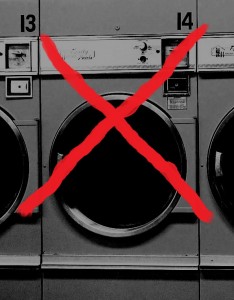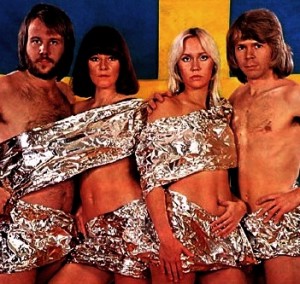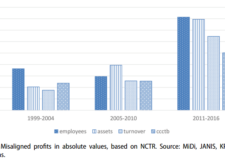Welcome to this week’s Offshore Wrapper by George Turner: a look back over the past week in tax justice
European Parliament backs crackdown on money laundering
On Thursday the European Parliament took an important step towards ending financial secrecy and dodgy shell companies when a committee of the European Parliament voted to approve a report into a proposal for a new Money Laundering Directive.
This report called for a new register of beneficial ownership in Europe to reveal the true owners of companies operating across the continent.

If the report is approved by a full session of Parliament next month, it will define the official position of the European Parliament when it negotiates with the European Commission to bring forward new legislation.
Eventually (but most likely not for a few years) the new directive could be implemented across all member states.
You can see why people find the European legislative process difficult to understand. Read the reaction from Global Witness here.
But money laundering still pays
Before we get too carried away about the money laundering breakthrough in the European parliament last week, let us pause to consider last week’s “sobering fact of the week” courtesy of the OECD.
The OECD reported that not one of its 34 member countries is fully compliant with the organisation’s current recommendations on preventing money laundering.
There is still, in other words, a very long way to go to making the rich world’s financial system an inhospitable place for corrupt politicians and criminals.
For an excellent summary of where we are, where we have been, where we are going and why this is all so important, read the op-ed from the Chair of the OECD Development Assistance Committee Erik Solheim.
G20 united on tax avoidance
Finance ministers from the G20 nations met in Sydney last week and tax avoidance was high on the agenda.
The meeting released a communiqué which took aim at profit shifting by transnationals. The communiqué said: “Profits should be taxed where economic activities deriving the profits are performed and where value is created”.
Will G20 rhetoric spell the end of any number of farcical situations including Jersey being credited as a major exporter of bananas? Time will tell.
The summit also endorsed the OECD’s new automatic exchange standard. This is expected to be implemented by G20 nations before the end of the year.
Australia, which is currently chairing the G20, will be particularly sensitive to the problems of transnationals engaging in tax avoidance.
It had to pay A$880m to Rupert Murdoch’s New Corporation after failing in a legal challenge over the amount of foreign exchange losses which could be deducted from tax when one part of NewsCorp sold the Bermudan part of NewsCorp to another part of NewsCorp.
Growth in Africa is not combatting rising inequality
A report released by the Tax Justice Network Africa in conjunction with Christian Aid shows how growth is failing to combat rising inequality.
One of the major causes is that governments have been unable to capture the proceeds of growth through taxation. Either because of tax breaks given to industries or because profits have been shifted offshore.
The report demonstrates that while action at the OECD and the G20 is welcome, it must be made to work for poorer countries too.
Vote with your wallet
Last week the Fair Tax Mark was launched by Richard Murphy and Ethical Consumer magazine.
The Fair Tax Mark helps consumers deal with the perennial ethical dilemma which goes like this: how do we know if the money we give to any company in order to buy the things we need is not being subject to all sorts of accounting tricks to deprive our government of revenue with the result we see public services cut?
Now we have handy guidance to navigate this issue. The Fair Tax Mark is an independent accreditation system, with companies graded on transparency, tax rate, disclosure and avoidance.
Companies that meet the standard can display the Fair Tax Mark with pride, giving consumers the knowledge they need to vote with their feet.
So far, three companies have been accredited with the Fair Tax mark. Take a bow Unity Trust Bank, Midcounties Co-operative and The Phone Co-op. You are truly pioneers.
[Disclosure: TJN sources its telecoms services from The Phone Coop]
Money Money Money…….
Offshore Wrapper is still reeling from the shocking revelation that we cannot blame the deranged costumes worn by the Swedish pop group Abba on 1970s fashion and hallucinogenic drugs.
Those figure-hugging, satin and sequins outfits were actually a tax dodge. Under Swedish tax rules, the band was allowed to discount the cost of their costumes from their tax bill – but only if it was inappropriate for the clothes to be worn offstage.
“Abba-gate” confirms what we knew all along: tax accountants have zero fashion sense.
What a dip stick: BBC DJ claims he is a used-car salesman to avoid tax
As if Abba dressing up in spandex jump suits to cut their tax bill isn’t enough, now we learn that BBC Radio One DJ Chris Moyles tried to persuade Her Majesty’s Revenue & Customs that he was a used car-dealer to reduce his tax obligations.
Moyles claimed that he spent a year as a used car-dealer and made a large loss which he used to write off the tax on his salary funded by UK BBC licence payers.
This dastardly ruse was recently defeated in the courts by the HMRC. Perhaps the UK’s Revenue had a relatively easy ride closing down this particular scheme. After all, it was set up by a company called, NT Advisors – the “NT” standing for “No Tax”.
Even yours truly at Offshore Wrapper could have worked that one out…






Leave a Reply